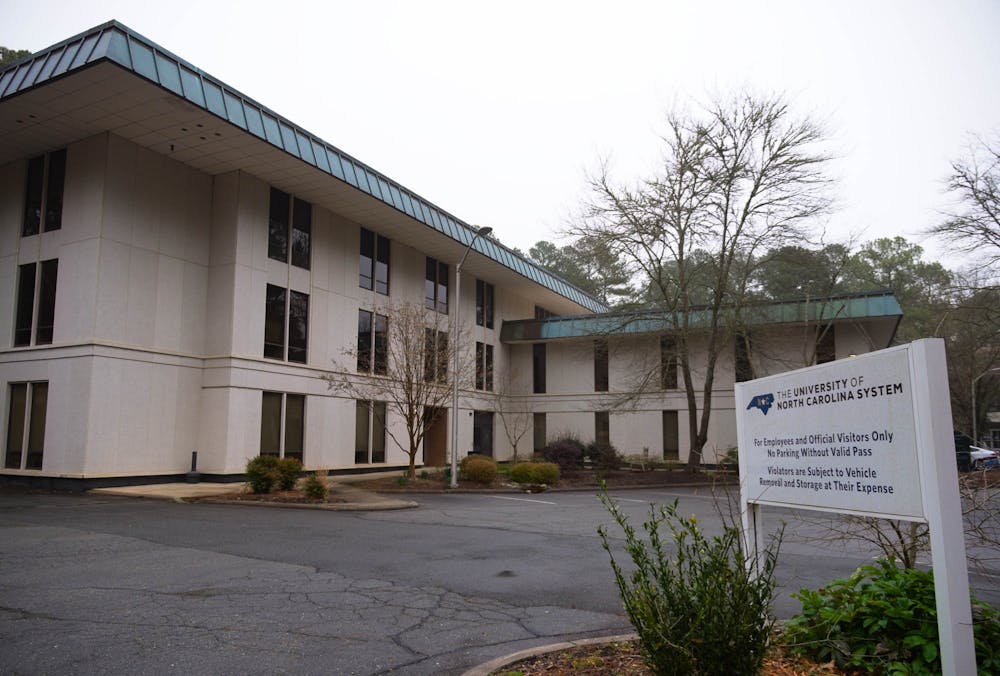At the time, Margaret Spellings — who became System president in March 2016 — told the Raleigh News & Observer that diversity issues can happen at any size. The quality of the Board is what mattered, she said, applauding the decision to reduce the size.
Spellings ended her five-year contract early in March 2019.
Spellings said in a statement that she continues to watch the development of the UNC System and is thrilled by the current work around affordability and completion, especially of the needs of first-generation students.
“Though I miss being part of this important work, I congratulate all those who have contributed to these successes in challenging times for higher education,” Spellings said. “The University of North Carolina System is the state's premier asset and will be critical to the state's continued prosperity and growth.”
Tom Ross, who served as System president prior to Spellings, said the BOG’s role is primarily to set policy and allocate budget funds, as well as centralize academic planning.
However, he said like any governing boards, there are often different interpretations of what is policy-making versus what is management or operational responsibility. This sometimes applies to the BOG.
“This can lead to a couple of problems: one is basically interfering with personnel and the operations of the institution, and another is a higher level of micromanagement than is traditionally appropriate," Ross said.
Increased politicization
The Republican Party took control of both chambers of the North Carolina legislature in 2010 — and have remained in control — after mostly Democratic majorities in the years prior.
“The legislative leaders wanted to bring the Board of Governors under a tighter control of the legislature, and the Board of Governors wanted to bring the various candidates under tighter control of the Board of Governors,” Lloyd Kramer, a history professor and the former chairperson of the faculty at UNC-CH, said.
Kramer said leadership of System had traditionally been viewed as under the purview of the Democratic Party.
Ross, a Democrat, served as president from 2011 until 2016 — when he was forced to resign. Many have since speculated that this was for merely political reasons.
To get the day's news and headlines in your inbox each morning, sign up for our email newsletters.
“There’s no question after Republicans took control of the legislature, they aimed to get a Republican System president," Whichard said.
Whichard said he recalled hearing rumors about Board of Governors candidates being asked if they would be willing to vote to remove the president — who, at the time, was Ross.
Ross said the party in control of the legislature used to generally hold a majority of BOG members, but the other party was also always well-represented.
“When you had both parties, and substantial numbers on the Board, the partisan politics were not brought into the room because they were too easy to be identified and called out,” Ross said. “So I think that was helpful to the System to have that blend of people from both political parties on the Board; it tended to reduce the parts of politics.”
But Ross said during his presidency, and since then, this bipartisanship has changed, with the legislature choosing to appoint more partisan voices to the BOG.
“The question always comes up is, do they have an allegiance to their appointing or electing authority that they end up doing their bidding, as opposed to doing what's best for (a) university and exercising their independent judgment,” Ross said. “But I'm sure there are specific instances of all those things in the past that you could uncover.”
In November, The Daily Tar Heel found that 21 members had political contributions tied to Republicans, and only eight to Democrats.
“The Senate selects people who they believe are capable of making sound decisions and who agree that affordability in education is a top priority,” a spokesperson for N.C. Senate President Pro Tempore Phil Berger said in a statement. “We expect those people to think and act for themselves and use their own best judgment.”
Media representatives for N.C. House Speaker Tim Moore did not respond to requests for comment.
BOG, Silent Sam and the future
In February, The Daily Tar Heel reported that it appeared the Board misled the public on the role of five BOG members in the November 2019 Silent Sam monument settlement with the N.C. Sons of Confederate Veterans.
Kramer said that the settlement was an example of the Board of Governors taking action without being engaged with the people on the local campus.
“The Silent Sam issue had a big impact on the ways in which the faculty view the Board of Governors, it wasn't the only issue,” Kramer said. "There's also a feeling that the Board of Governors has not understood the ways in which the University has suffered from budget cuts.”
Kramer said the BOG has not been as active in promoting the needs of the University.
Part of the challenge the Board of Governors faces is leading an institution different than their own experiences, Kramer said.
“This is one of the anomalies of the System, that the universities have to figure out how to sustain and protect and defend their academic programs, but often in conjunction with people who are not so deeply aware of how academic institutions might function,” Kramer said.
Media representatives for the UNC System did not respond to requests for comment by the time of publication.
Regardless, Ross said he is hopeful for the future of higher education.
“Higher education is more important than ever, and has been a real separator, I think, for North Carolina,” Ross said. “So I hope the Board and legislature understand that and will continue to give it full support.”
@forepreston
university@dailytarheel.com




